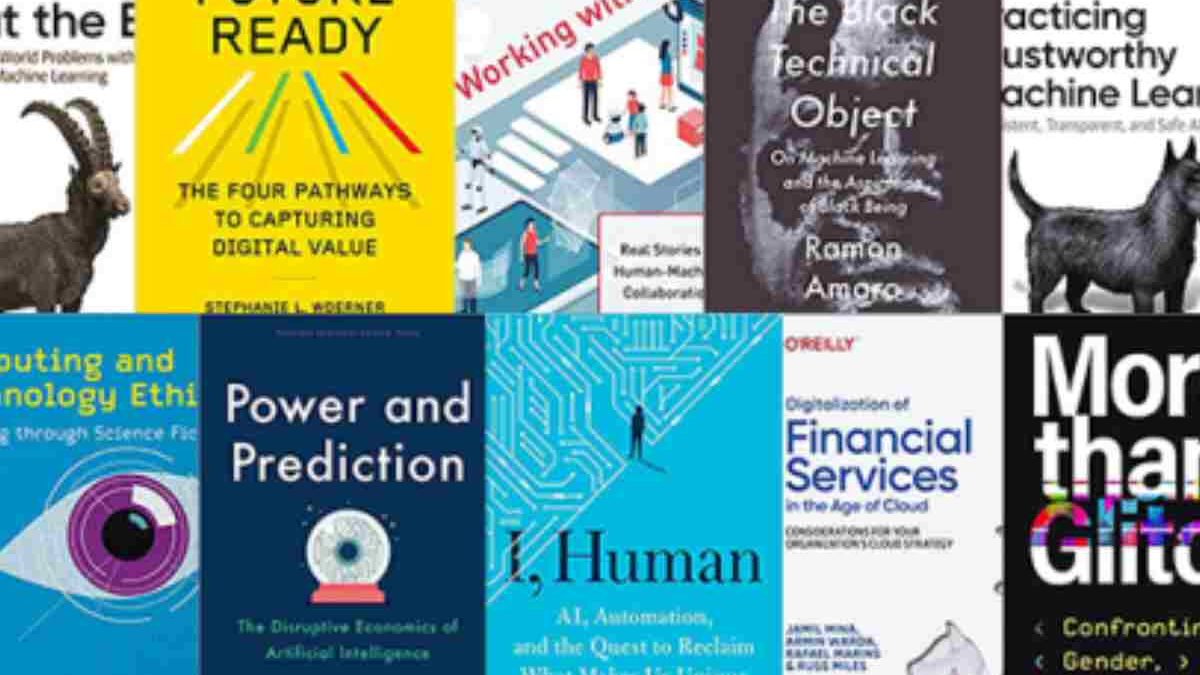Five books to surprise those who think they hate science and technology – Whoever doesn’t read popular science books because they don’t want to, the offer in Spanish of this genre has skyrocketed in recent years to the point that the novice reader can get lost among many titles and authors. Or, even worse, try titles that are as popular as they are dense: A Brief History of Time (Stephen Hawking), The Origin of Species (Charles Darwin) and The Selfish Gene (Richard Dawkins) are some of the most typical examples that tend to end up taking dust on the shelves.
To avoid a bad experience that translates into a phobia, at Teknautas, we have compiled some of the best titles published —or reissued— in recent months, capable of attracting any curious reader.
Are you kidding, Mr Feynman? (Richard Feynman)
Richard Feynman is one of the greatest geniuses humanity has seen. Quantum mechanics, quantum electrodynamics, superfluids, particle physics… The work of this Physics Nobel Prize winner is full of concepts incomprehensible to ordinary mortals. Luckily, this book has more funny anecdotes than equations, thanks to the fact that the life and character of this character were even more fascinating than his scientific legacy.
This book collects a good part of these stories that the joker Feynman related to one of his friends, who later compiled them in writing. We’re talking about a quirky scientist whose passion for playing the bongos is matched only by his fondness for topless bars, where he’d draw inspiration and jot down his ideas on napkins while enjoying a 7-up. The physicist, who participated in the Manhattan Project, distracted his boredom by breaking into the Los Alamos safes: no matter how much they improved their security, none resisted his hands.
Bonus: Feynman. Comic book lovers can try their luck with this story by Jim Ottaviani, which illustrates a good part of the anecdotes in the previous book.
Why is sex fun? (Jared Diamond)
Always read Jared Diamond. This Pulitzer Prize-winning biologist is known for his brilliant theses on how human societies form, evolve, and collapse, all from a geographical and ecological point of view. Weapons, germs, and steel is, perhaps, his great masterpiece, without underestimating books like Collapse and The World Until Yesterday.
But Diamond also has time for lighter work. Why is sex fun? The biologist takes human relationships as an excuse to trace a journey through our evolution, unique among the rest of animals. Along the way, he answers questions as curious as why men have nipples or why the human penis is so huge compared to other primates.
Bonus: Societies Compared. You can try this new starter for those curious about Diamond’s sociological theses but daunted by the length of works like Guns, Germs, and Steel. In seven short chapters, the biologist explains why some countries are poor, and others are not and how geography has marked civilizations’ fate throughout history.
The man who mixed his wife for a hat (Oliver Sacks)
A popular science classic that, due to the death of its author last summer, deserves to be on this list. In this famed volume, neurologist Oliver Sacks reviews twenty-four real-life cases of patients with Parkinson’s, Tourette’s syndrome, and visual agnosia.
The examples narrated by Sacks have an aura of tragicomedy: a man who tries to place his wife on his head, a woman who “went back in time” when suffering epileptic seizures, and a patient who does not recognize his leg… The ability of the popularizer to explain these disorders with humanity and respect allows us to open a window to the world of neurological diseases.
Bonus: On the move. This posthumous autobiography combines drugs, neurology, motorcycles, homosexuality and weightlifting. But, above all, it is an honest farewell letter full of love. However, and if we’re hungry for Sacks, the movie Awakenings —Robin Williams plays the neurologist— is the best tribute to this popularizer.
The Rise of Man (Jacob Bronowski)
This book, recently republished in Spanish with great success, an almost verbatim transcription of Jacob Bronowski’s documentary series broadcast in 1973. In his pages, the unforgettable mathematician reviews the development of the human being through his understanding of science and technology. More than four decades later, it is surprising that this essential classic has aged so well.
“Knowledge is an endless adventure on the edge of uncertainty,” says Bronowski in this book. This humanist, who vehemently rejected the separation between science and letters, lists in The rise of man the “great monuments” of human understanding with a clear language that invites you to devour his pages.
Bonus: The rise of man. Again. The documentary series was recovered a few years ago on DVD, and although identical to the book it gave rise to, viewing it also enjoyable.
Internet Safari (Noel Ceballos)
Studying how the new online world has transformed, is transforming and will transform the human being is a science that still has no name. Ceballos is, in this sense, a pioneer who analyzes this evolution in his essay.
Why do we lie on the internet? Why don’t we focus anymore? With a brilliant sense of humour, the book reviews how human beings relate to each other thanks to new technologies. Essential for those curious who wish to understand this new world that, ironically, still few understand.
Bonus: Caught. This book by Nicholas Carr is a necessary debate on the advantages and disadvantages of information technologies without falling into technophobia or Luddism.

